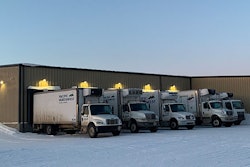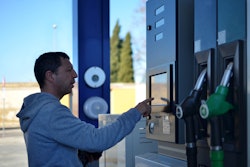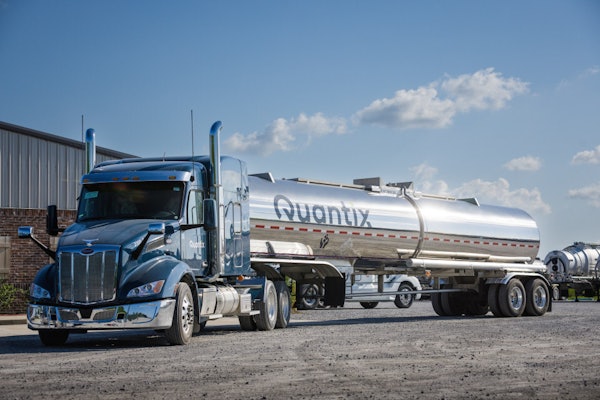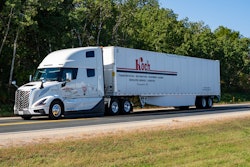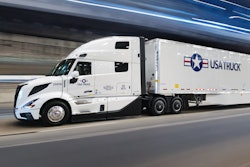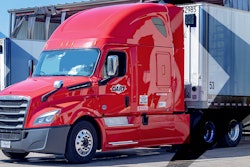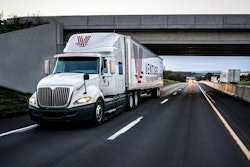Bestpass-Fleetworthy, Drivewyze, Empire, Zonar, GPS Trackit, Powerfleet and Fleet Complete. Those are just some of the technology companies that serve the trucking industry that have recently been involved in consolidations.
One of the biggest of the year was Platform Science’s announcement in September that it plans to acquire Trimble’s telematics business, which was built in large part in 2011 when it acquired PeopleNet. That deal is expected to close in the first half of 2025.
And additional deals could be on the horizon.
In this month alone, telematics provider Zonar merged with GPS fleet tracking solutions provider GPS Trackit, and Fleetworthy acquired a commercial vehicle parking violation management and resolution company in New York City.
[RELATED: Bestpass-Fleetworthy acquires Drivewyze]
Jacques DeLarochelliere, president and cofounder of Isaac Instruments, a Trimble partner, said increased M&A in the trucking technology space was expected with the difficult market over the past couple or so years.
“The market is really fragmented,” he said. “If you look at the significant players providing telematics … that are focused on trucking fleets, there are four. You have Solera Omnitrax … Trimble/PeopleNet, Platform Science, and of course, Isaac. You have other players that are doing multiple verticals or are more diluted in terms of focus. I'm thinking of Samsara, and Geotab, and Motive and others … You can expect more M&A in tougher times among these smaller market share players.”
Isaac uses the Trimble Maps product for turn-by-turn navigation on its driver tablets and also integrates with all of their transportation management systems. DeLarochelliere said the Trimble/Platform Science deal just makes Trimble a better partner.
And that’s one of the benefits trucking companies see when transactions like these occur.
Dave Brajkovich, chief technology officer at cross-border LTL carrier Polaris Transportation, said these consolidations close gaps because no single plug-and-play provider perfectly meets all the needs of any given trucking company.
“I think it's favorable when there is some consolidation because all of these options are just too much for someone to really peg the exact fit in your industry, and you can spend tons of time and money trying to chase the right tool,” Brajkovich said. “So consolidation, I think, is good. It's giving people a better opportunity to shortlist technology and needs, and it could probably become more affordable for smaller companies to invest into those types of tools, because once they consolidate, they're not paying like 16 different subscriptions.”
That’s why Polaris has its own 12-person tech team, led by Brajkovich, called North Star Digital that creates solutions to address Polaris’s needs specifically. But not every trucking company can do that. Brajkovich said it’s an expensive investment to buy the necessary tooling and to hire tech people with the right skillset.
But that alleviates a lot of headaches for Polaris because “as software gets out there, gets developed, we're not overly concerned about who's acquiring who,” he said.
The company is also more flexible having its own technology.
As Polaris’s customers advance their own technology, Brajkovich said the carrier is able to adapt with them as opposed to buying a tool that at some point may become incompatible with a customer’s technology. He said those tech vendors have hundreds of customers, so a small carrier isn’t going to be at the top of their radar, and it could take months to make changes, causing missed opportunities.
Polaris has direct API connections with its customers, enabling scalability for future growth.
[RELATED: Powerfleet aims to scale business with upcoming acquisition]
And for fleets looking to grow, DeLarochelliere said “you have to double (check) on the health of your technology providers to make sure that your business is well suited for what's ahead.”
He said the market is not very healthy in terms of viability or sustainability of these businesses. Though, he said he isn’t concerned about Isaac’s standing as it was built like a family-owned trucking company – brick by brick, with no venture capital backing and not publicly traded.
“You have to expect some consolidation in tougher periods with other financial architectures,” he said. “… We've seen a lot of activity, and we've seen some attempts that failed. That says that it's not only the trucking industry; the investment market also is disrupted to some extent. So the valuations are not what the businesses who want to find investments are happy with, so we have not been in that market.
“But of course, we are looking at different targets that we could acquire,” he added.





